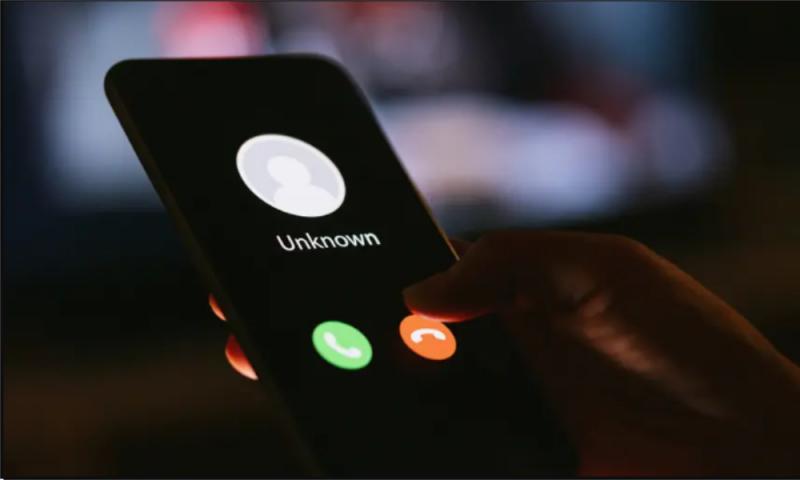YOURSAY | Banks, telcos and public must be vigilant against scammers
YOURSAY | ‘Amend the law to charge those involved with much heavier penalties.’
Scams: MP wants IGP to lead charge, banks to be held responsible
New Era Fairplay 2024: Almost every day I get a call purportedly from a bank’s credit card centre asking me to approve a credit card transaction by pressing one or if I want to speak to a customer care executive to press nine.
Each time it is a different mobile number. I have reported this to the bank through the authorised landline.
Besides asking me to not respond, it looks as if nothing much is being done.
Now I use a caller tracing application but some escape as the number may not have been reported.
On other occasions, the report shows how many reports have been lodged against a number, but still nothing has been done.
Are the telcos complicit in this attempt to get a market share of SIM card sales? Why can’t the telcos block these numbers?
The most frequent calls are from numbers starting with 010, 011, and 014. Telcos should also be held responsible for this besides the banks.
All said and done, eternal vigilance and education are the only way to escape these scams, but unfortunately, there are still many who are vulnerable.
Anon25: What DAP national chairperson Lim Guan Eng suggests is extremely impractical. Better to follow some simple rules.
Ignore all incoming calls that do not identify the caller.
Mazhilamani: Many have been getting scam calls from all kinds of people and businesses.
I have been getting regular calls from a bank about a transaction that was made, and they want my confirmation.
I know it is a scam call because the same amount is parroted each time and I have no account with the bank.
Some even get calls from Bank Negara, the Income Tax Department and police stations.
This will cause vulnerable people to act mindlessly and volunteer personal details only to be scammed.
The most vulnerable victims are senior citizens. It is up to the children to constantly remind them not to answer third-party calls.
GalaxyM: The government should insist that the banking institutions and the Malaysian Communications and Multimedia Commission (MCMC) implement measures to stop scammers from cheating the public of their hard-earned savings.
The unfortunate badminton shuttler Lai Pei Jing could be just the tip of the iceberg.
The fact that she reportedly lost RM400,000 to scammers is shocking and unthinkable.
Come on, the scammers have been around for a long time and the victims of the scamming syndicate have made reports to the police hoping to recover their losses.
But it looks as if the public is at the mercy of the crooks because the government and its relevant ministries are useless, as they can’t do anything to stop the evil scammers.
YellowCat1156: I have nothing but the utmost sympathy for Lai.
I agree that the police should act quickly and decisively.
But I’m not sure how banks can be held responsible for what account holders do with their money.
Lionking: Victims suffer huge losses, sadly. One easy way out is to consult your friends or children whenever such calls are received.
Tell these leeches that you will call back or ask them to call back in a few days. No one can threaten you on the phone.
Do not entertain such calls.
WhitePony9855: Banks in their zeal to earn more profits have become lax in protecting their customers’ privacy and personal info.
Their vetting of transactions is flawed with loopholes that scammers can exploit.
When any scam occurs, the banks are first to deny responsibility. Banks must be more vigilant and held responsible too.
Punchie101: Scammers will never reveal their identities. All their communications are through WhatsApp messages.
They will even entice you with beautiful girls, with sweet voices to lure you into investing.
Invite the whole team to meet you in the lawyer’s office and see what happens. The scammers will never appear.
By the way, their current trick is asking you to invest in an initial public offering.
Relieved: In Singapore, the major banks have staff posted to the police anti-scam unit. They can then immediately block an account if a scam is suspected.
This coordinated action has prevented many scammers from accessing accounts.
The bank staff are also trained to spot walk-in customers (especially the elderly) who ask for big withdrawal amounts and seem anxious. These measures are not difficult to implement.
KK Voter: There are many types of scams. Scams where the victims are scammed into withdrawing or transferring their money to scammers.
In these cases, it is the victim who must take responsibility for falling for their lies.
However, scams involving illegal transfers and phishing involve the banks’ and telcos’ security measures.
In Singapore’s new framework, banks and telcos are made responsible for the latter, as they should be.
Hmmmmmmmm: In an age where all our transactions leave an electronic trail, I am wondering why it is so difficult to trace the scammers.
The money transferred by the victims must go to somebody’s account.
Headhunter: Scammers are the scum of society.
The law should be amended to charge those involved with much heavier penalties, including compulsory caning and lengthy incarceration.
The above is a selection of comments posted by Malaysiakini subscribers. Only paying subscribers can post comments. In the past year, Malaysiakinians have posted over 100,000 comments. Join the Malaysiakini community and help set the news agenda. Subscribe now.
These comments are compiled to reflect the views of Malaysiakini subscribers on matters of public interest. Malaysiakini does not intend to represent these views as fact.
RM12.50 / month
- Unlimited access to award-winning journalism
- Comment and share your opinions on all our articles
- Gift interesting stories to your friends
- Tax deductable
